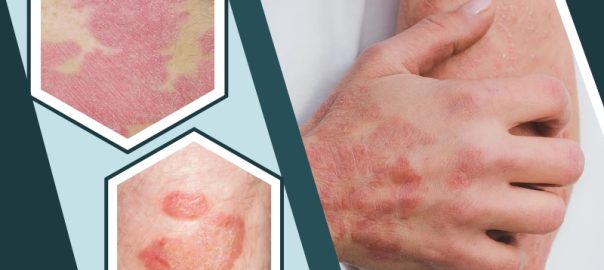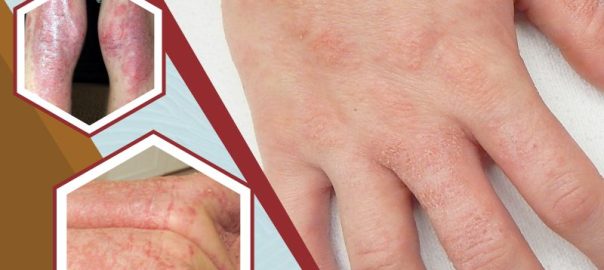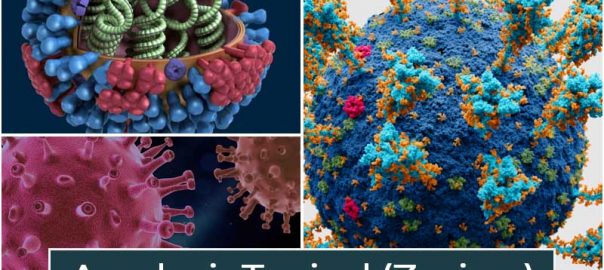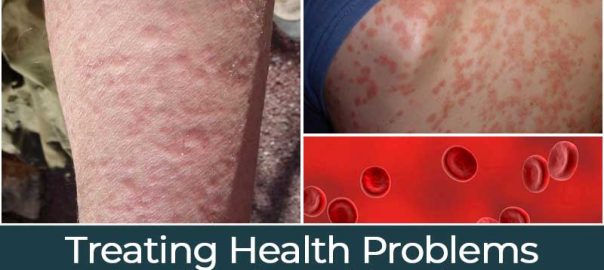Psoriasis is a scaly and red skin disease characterized by patches of red, itchy skin most commonly on the knees, elbows, trunk, and scalp. There is no cure for this long-term (chronic) disease. The condition goes through cycles, flaring for a few weeks or months, then subsiding or remitting for a while. You can manage symptoms with treatments. In addition, lifestyle habits and coping strategies can help you cope with psoriasis better.
There are several types of psoriasis including:
- Plaque psoriasis
- Nail psoriasis
- Guttate psoriasis
- Inverse psoriasis
- Pustular psoriasis
- Erythrodermic psoriasis
- Psoriatic arthritis
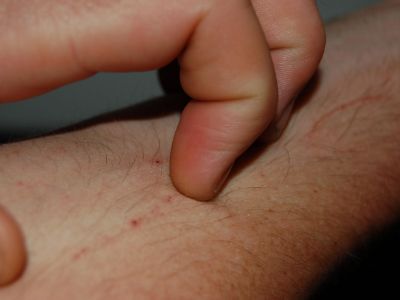
Symptoms of Psoriasis
The symptoms of Psoriasis can vary from person to person. Common symptoms may include:
- Thickened, pitted, or ridged nails
- Swollen and stiff joints
- Dry, cracked skin that may bleed or itch
- Itching, burning, or soreness
- Red patches of skin covered with thick, silvery scales
- Small scaling spots (commonly seen in children)
Causes of Psoriasis
Research has a general idea of two key factors that cause Psoriasis:
- Genetics: The condition may run in families. Having one parent with psoriasis increases your risk of getting the disease, and having two parents with psoriasis increases your risk even more.
- Immune system: Psoriasis is an autoimmune disease. Autoimmune diseases occur when the body attacks itself. Psoriasis is caused by white blood cells known as T cells attacking your skin cells. Usually, white blood cells are deployed in the body to attack and destroy invading bacteria and mount a defense against infections. Skin cell production goes into overdrive due to this mistaken autoimmune attack. New skin cells are developed too quickly as a result of accelerated skin cell production. The cells are pushed to the skin’s surface, where they collect.
Diagnosis for Psoriasis
Two tests or examinations may be needed to diagnose psoriasis.
- You will be asked about your health and your skin, scalp, and nails will be examined.
- A biopsy of a small piece of skin may be taken by your doctor. This helps determine the type of psoriasis and rules out other disorders.
Treatment and Medication for Psoriasis
Psoriasis treatments aim to reduce the rate at which skin cells grow and remove scales. Treatment depends on the severity of psoriasis and how responsive it has been to previous treatments. You might need to try different drugs or a combination of treatments before you find an approach that works for you. Usually, however, the disease returns.
1. Topical therapy
- Corticosteroids
- Vitamin D analogs
- Retinoids
- Calcineurin inhibitors
- Salicylic acid

2. Light therapy
- Sunlight
- UVB broadband
- UVB narrowband
- Psoralen plus ultraviolet A (PUVA)
- Excimer laser
3. Oral or injected medications
Medications usually recommended used for the treatment of Psoriasis:
If you are considering dietary supplements or other alternative therapy to ease the symptoms of psoriasis, consult your doctor. Your doctor can help you weigh the pros and cons of specific alternative therapies.




